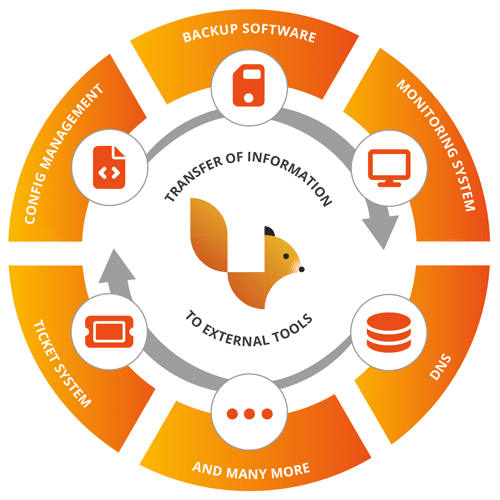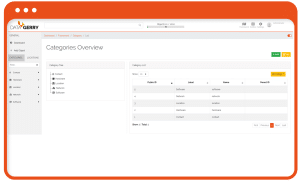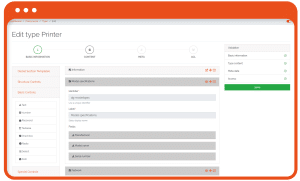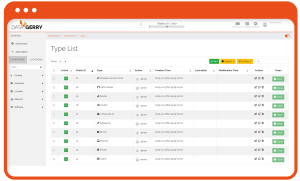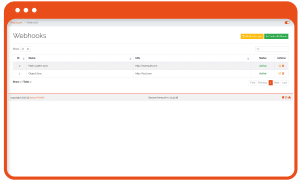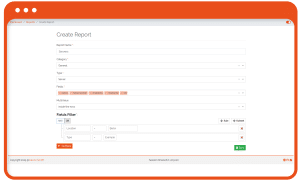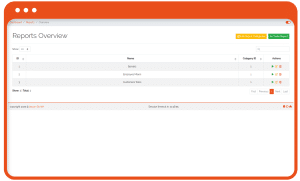Features
Object Management
Object management forms the foundation of DataGerry. Start by defining your object types (like servers, routers, etc.) using a web-based assistant. An object type consists of multiple fields with defined data types (e.g., text, date, reference to another object, checkbox, text area, etc.).
Object types can be modified at any time. For a defined type, objects can be added, modified, or deleted. Objects are versioned, and every change is tracked with a timestamp and username. A fast and powerful search helps you find the desired object in no time.
CI Explorer – Dependencies at a glance
With CI Explorer, DataGerry visualizes the relationships between configuration items (CI) directly in an interactive graphic. This makes dependencies and structures visible at a glance – from simple links to complex service chains. Powerful search and filter functions allow you to select the relevant CIs, while detailed information can be displayed at any time. CI Explorer thus creates transparency and clarity, supports root cause analysis in the event of incidents, and facilitates the planning of changes in complex IT environments.
Integrated risk assessment
DataGerry extends the CMDB with a central ISMS feature: the performance of risk assessment directly based on the objects maintained in the CMDB. This allows risks to systems, services, and business processes to be systematically recorded, evaluated, and documented. The close link between risk management and configuration data helps companies to quickly identify vulnerabilities and derive targeted measures. This approach facilitates compliance with regulatory requirements – such as those from the NIS2 Directive – and creates transparency about security-relevant dependencies in the IT landscape.
Multi-Subscription Support
The cloud version of DataGerry supports multiple subscriptions. After successful login, you can select the desired subscription. Since each subscription has its own database, DataGerry can also be used for multiple tenants.
REST API
APIs are essential for an asset management tool. Currently, we offer a REST API for extending/integrating DataGerry. Through the integrated API, CMDB objects can be made available for use in external systems. These systems could include monitoring systems, ticketing systems, DNS servers, and many others.
File Import and Export
Object types can be exported to a JSON file and imported from one. For the import and export of objects, DataGerry supports file formats such as CSV, XLSX, XML, and JSON.
External Tool Integration via OpenCelium
DataGerry provides powerful integration options for external applications with its integrated API and the API Integration Hub OpenCelium. OpenCelium enables real-time data exchange between DataGerry and third-party applications like monitoring systems, ticketing systems, or ERP solutions. The API Integration Hub allows different systems to be efficiently linked and ensures seamless data exchange through standardized interfaces.
Thanks to OpenCelium’s flexible architecture, custom integration scenarios can be quickly and easily implemented, significantly supporting the automation and digitization of your processes. For more information about OpenCelium, visit the OpenCelium website.
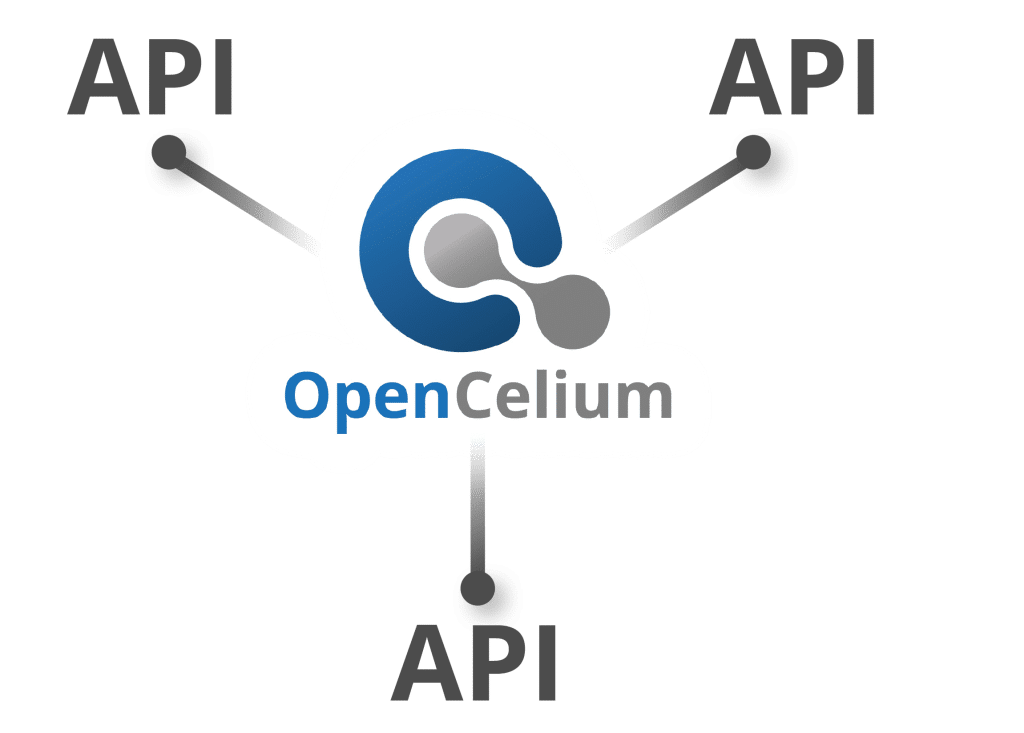
...and many more features on the roadmap
We’re just getting started with DataGerry and have many features on our roadmap. Stay tuned and subscribe to our newsletter to stay up to date.
USE CASE
Automate your IT with DataGerry:
Use DataGerry as a powerful and flexible central database to streamline and automate your entire IT environment. DataGerry allows you to store, manage, and organize all the essential information you need for your operations in one convenient location. With its robust and versatile features, DataGerry can seamlessly integrate with external systems such as DNS servers, ticketing systems, configuration management tools (e.g., Ansible), monitoring systems, and many others.
Whether you’re managing a complex IT infrastructure or running a smaller environment, DataGerry adapts to your needs, providing a scalable and reliable solution for IT automation. Experience increased productivity, greater data accuracy, and seamless integrations with DataGerry.
